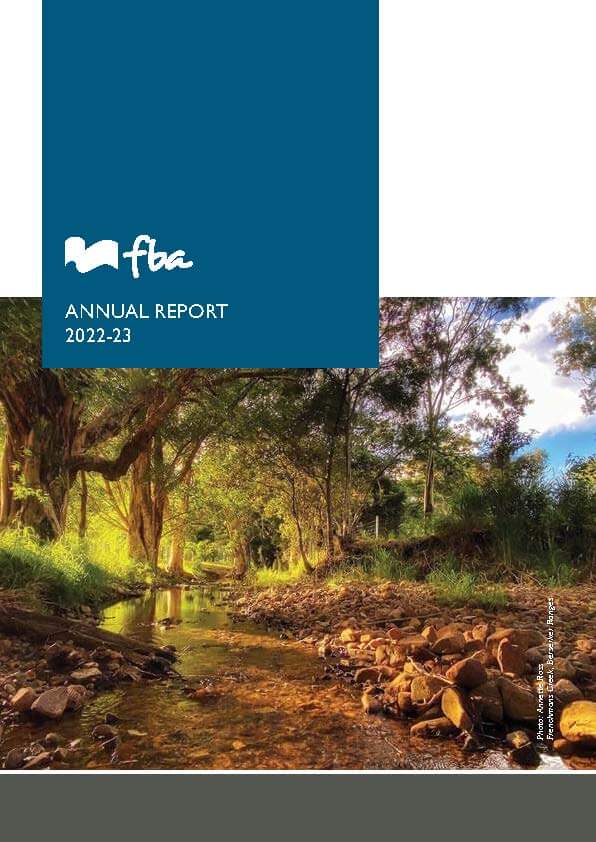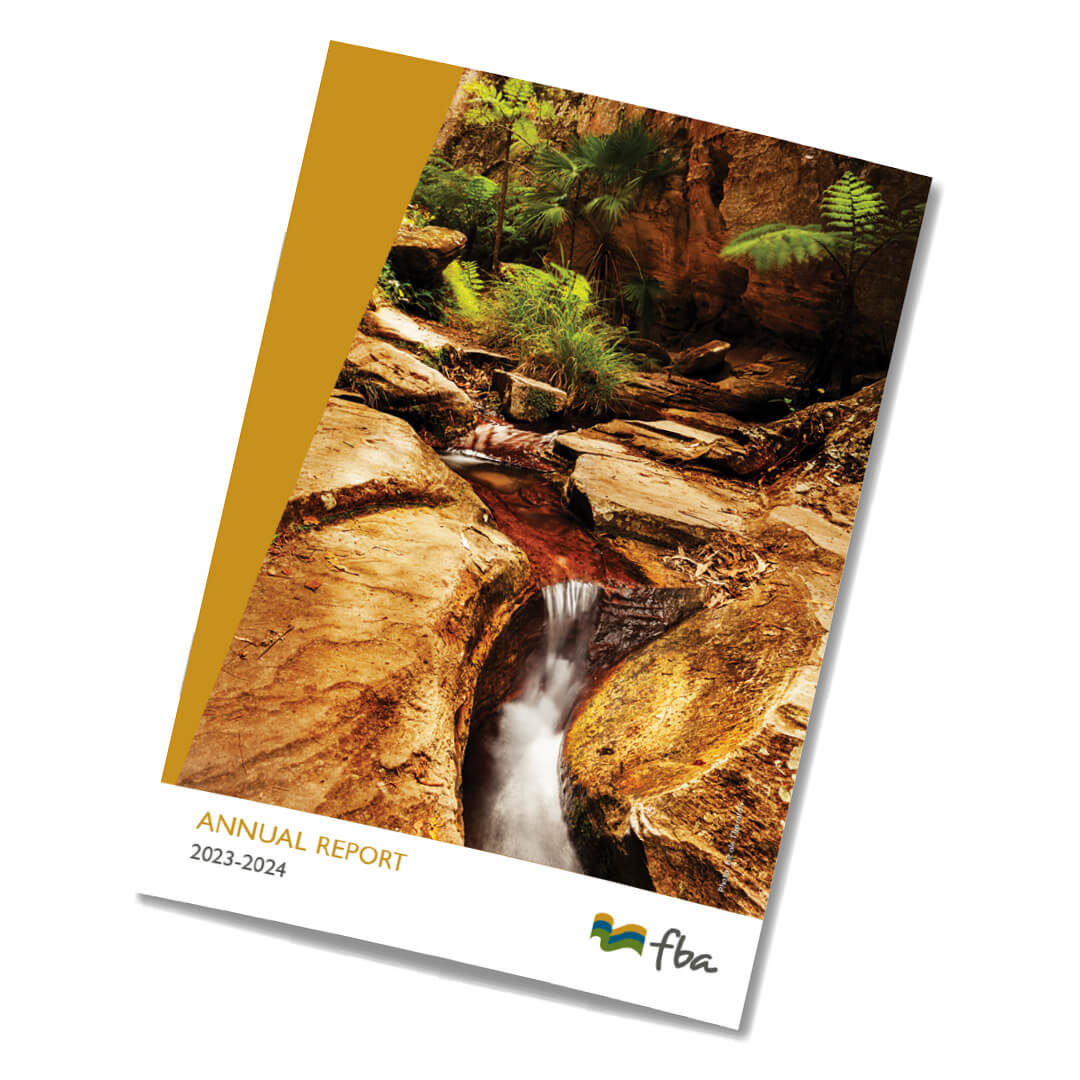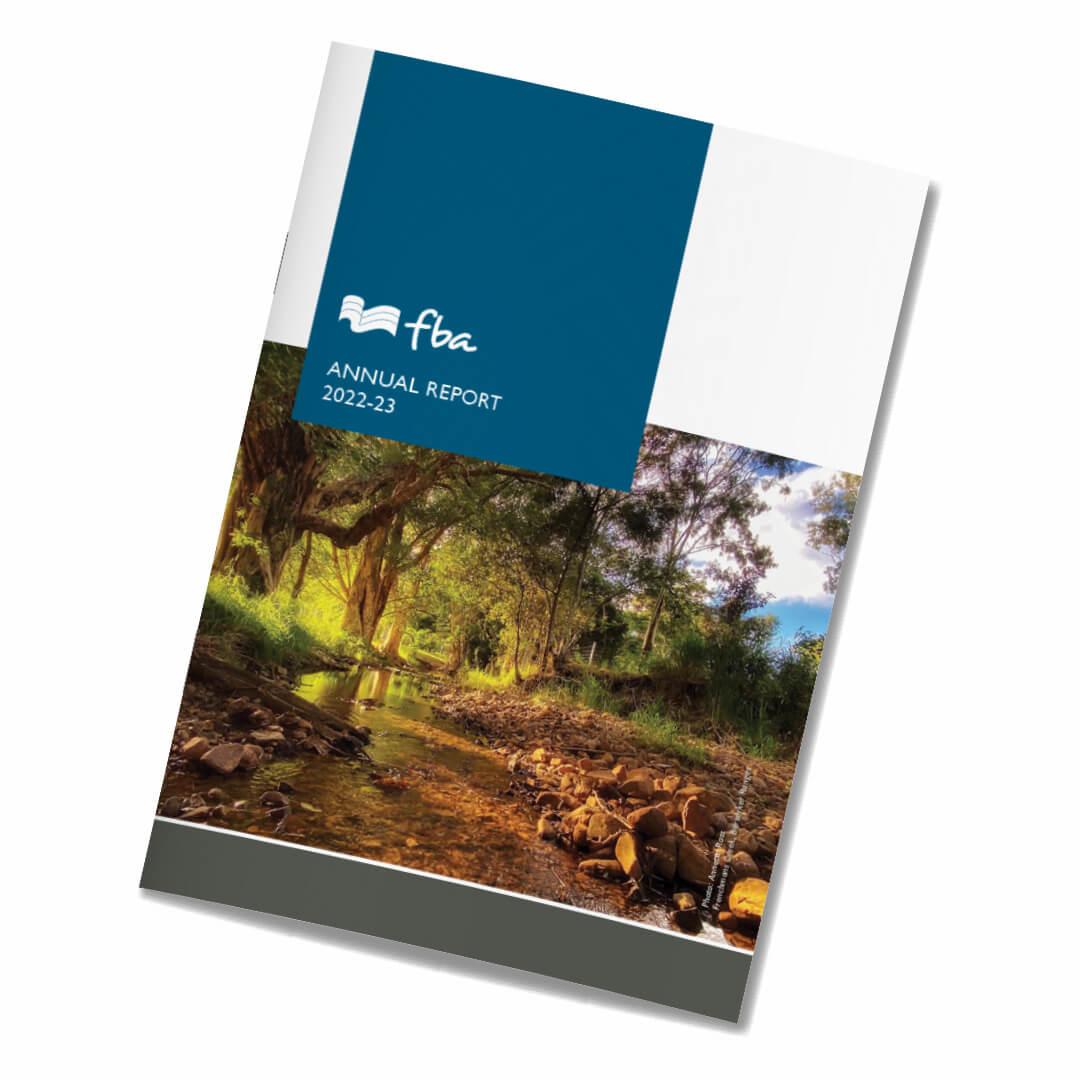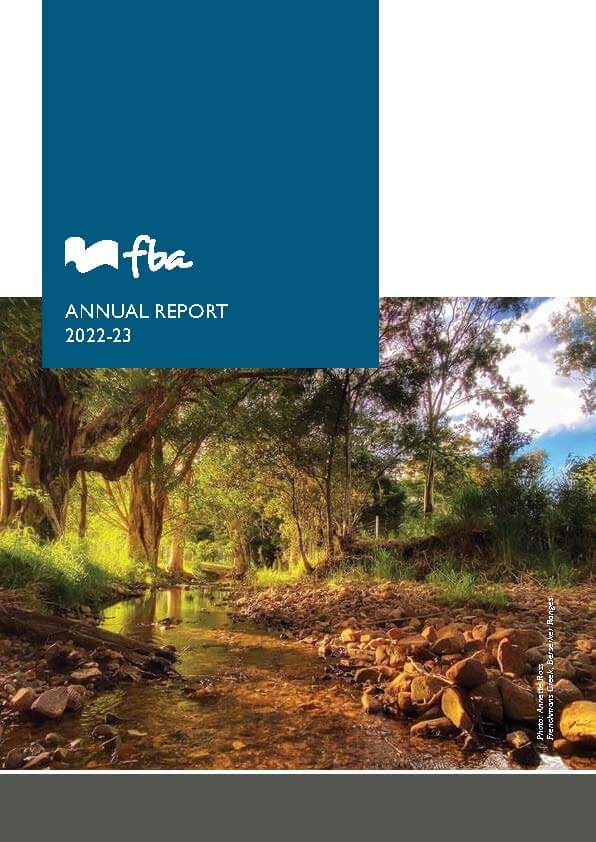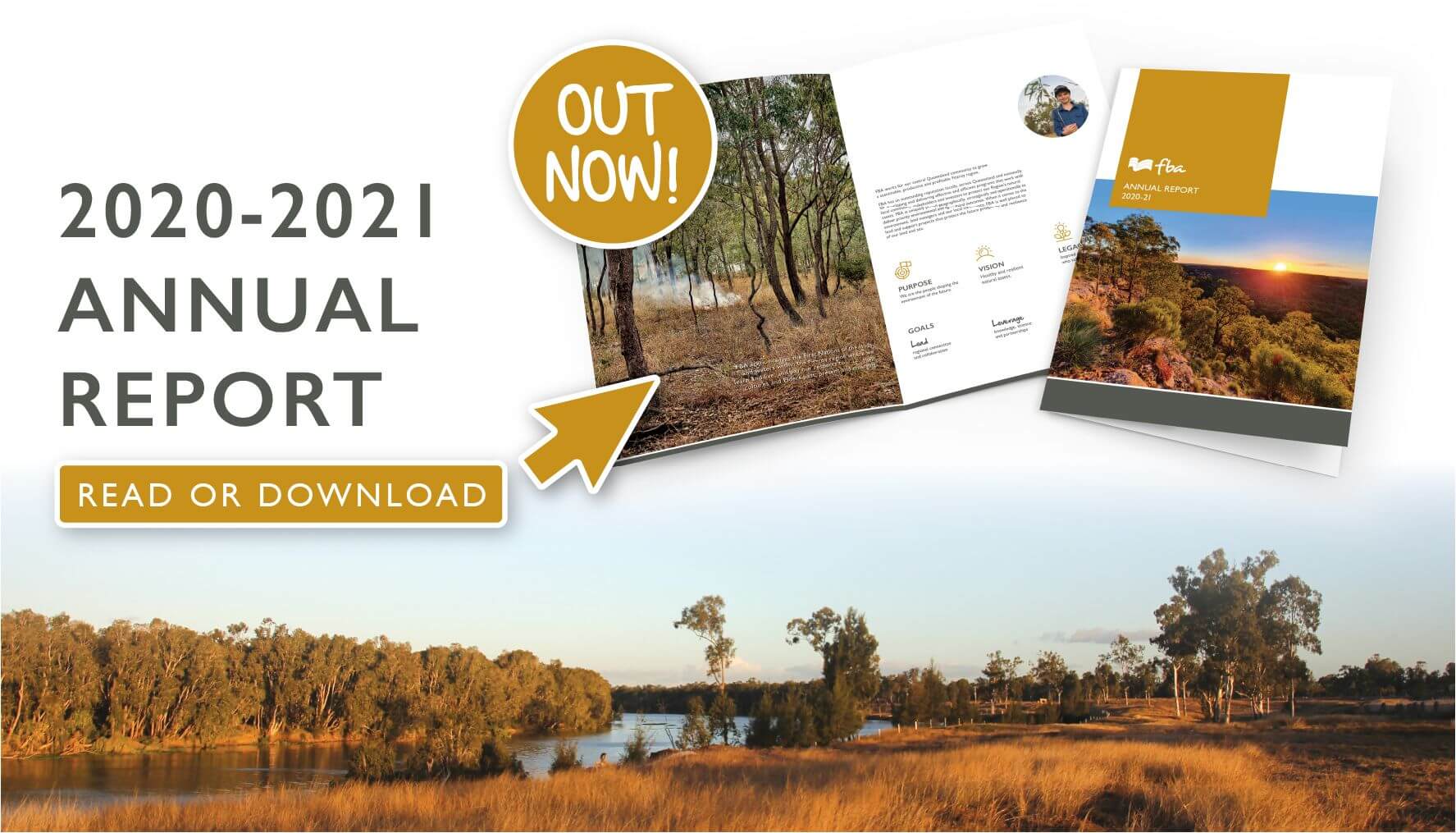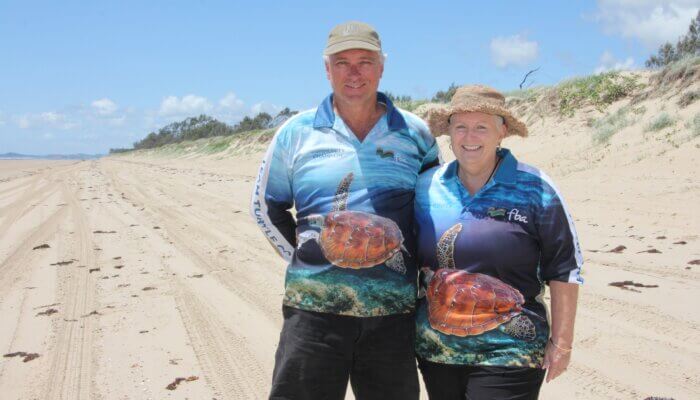Resources library - Community and Volunteers
Community and Volunteers Resources
How to Establish or Restore Native Trees in CQ Grazing Systems
How to Establish or Restore Native Trees in CQ Grazing Systems
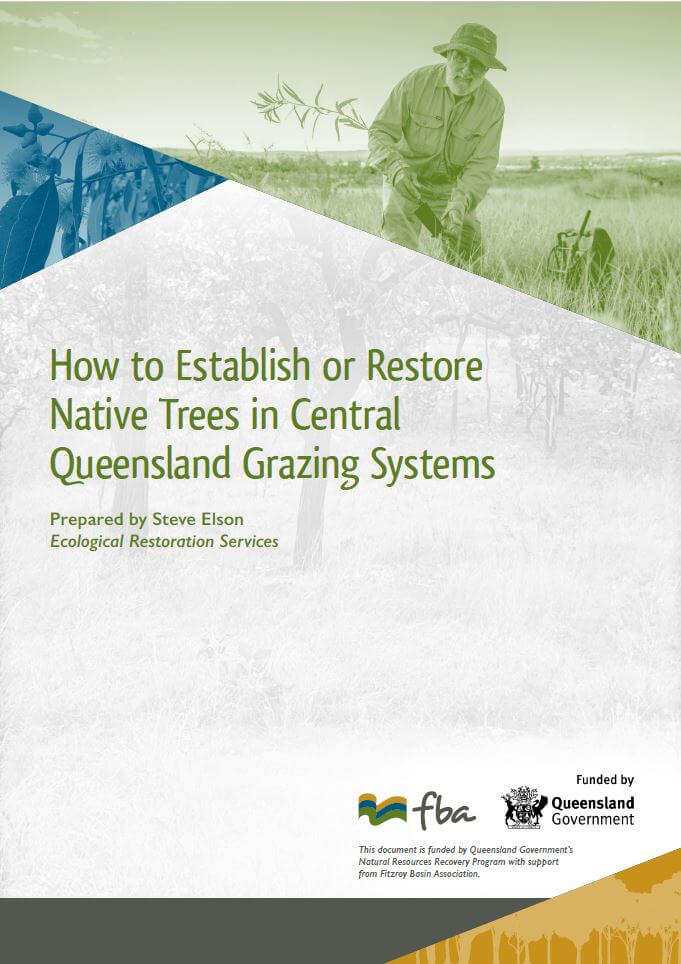
With over 30 years of practical experience propagating, planting and restoring native vegetation, Steve Elson is regarded as a local ecology and botany expert. True to Steve’s style, this guide is a pragmatic approach to establishing or restoring native trees in central Queensland’s often unkind and unrelenting climatic conditions. If you need a hand getting started, identifying a gum or choosing which natives are best for your place, FBA is here to help.
29/06/2023
Educational Video – Semi-evergreen Vine Thicket (SEVT)
Semi-evergreen Vine Thicket (SEVT) - Endangered Central Queensland Species - Educational Video
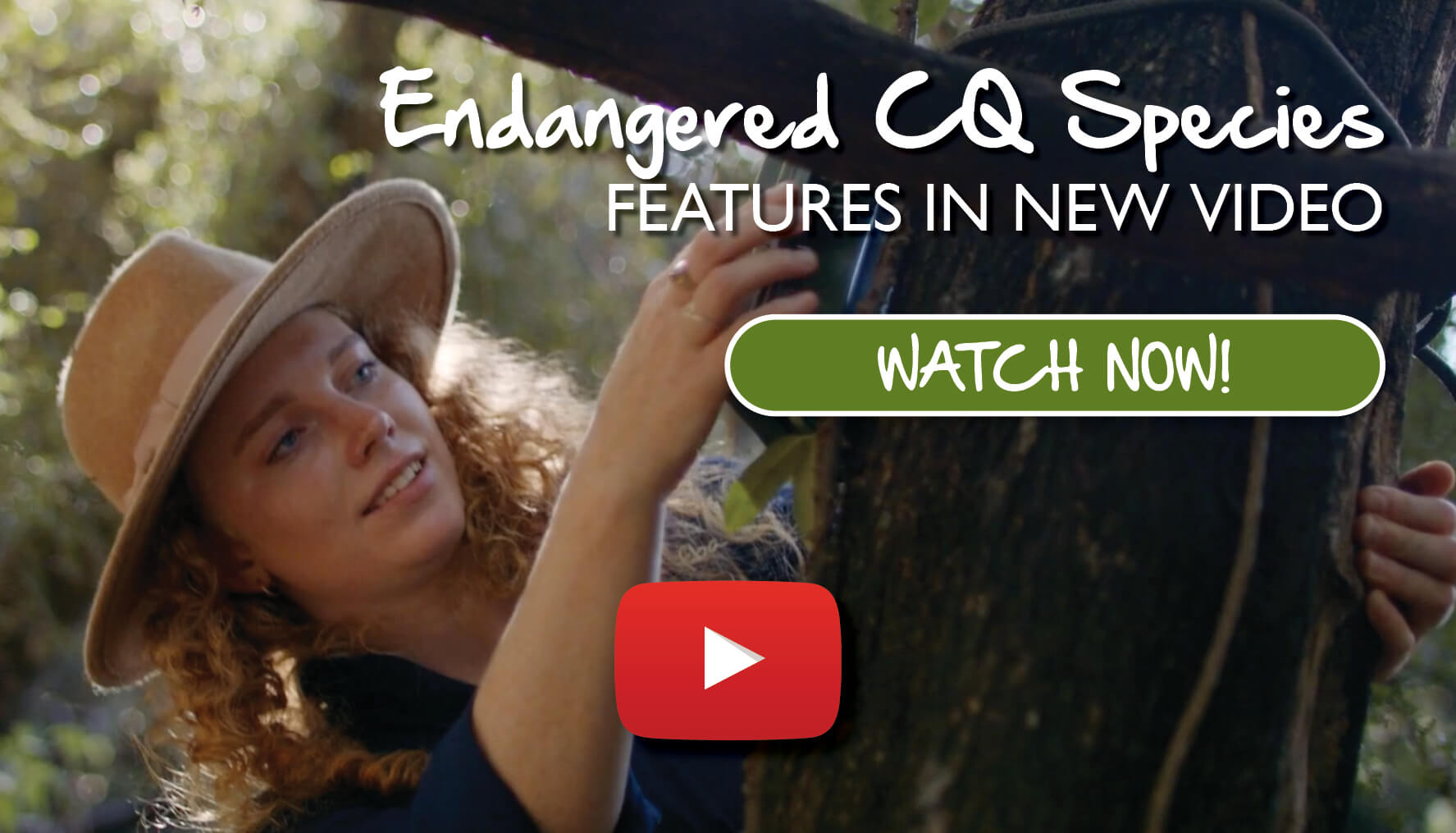
Semi-evergreen vine thicket (or SEVT), also known as bottletree scrub or softwood scrub, is a unique collection of trees and shrubs mixed with twining plants and vines (hence its name). Together the collection of living things (or ecological community) creates benefits for the CQ environment, animals, and humans! SEVT is the most biodiverse ecosystem in central Queensland. It is also the most carbon-dense ecosystem in central Queensland – storing large masses of carbon both above and below the ground. SEVT’s dense green mass of trees and vines is largely drought resistant. These features provide critical habitat and protection to native animals, safeguard people, homes and businesses from dangerous wildfires and improve the health and productivity of soil. It’s believed that SEVT covered more than 7 million hectares of Queensland and NSW at the start of the 20th century. Burning and clearing for agriculture have significantly reduced the amount of remaining SEVT. With less than 30% of the original SEVT remaining, the community is listed as endangered. Over the last four years we have been working with local land managers, First Nations People, local government and Queensland Parks and Wildlife Services to protect the remaining SEVT.
29/06/2023
Koalas in CQ Factsheet
Koalas in CQ Factsheet
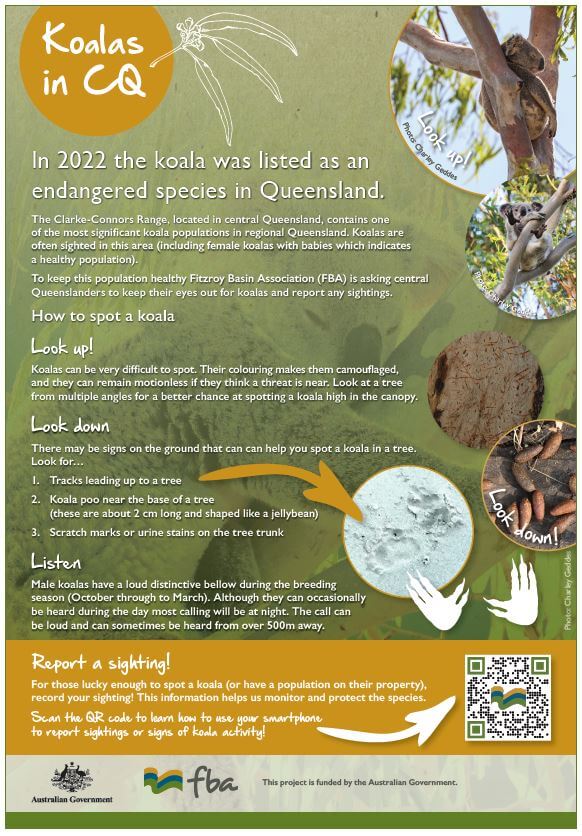
In 2022 the koala was listed as an endangered species in Queensland. The Clarke-Connors Range, located in central Queensland, contains one of the most significant koala populations in regional Queensland. Koalas are often sighted in this area (including female koalas with babies which indicates a healthy population). To keep this population healthy Fitzroy Basin Association (FBA) is asking central Queenslanders to keep their eyes out for koalas and report any sightings.
21/06/2023
Central Queensland’s Sustainability Strategy 2023
Central Queensland's Sustainability Strategy 2023
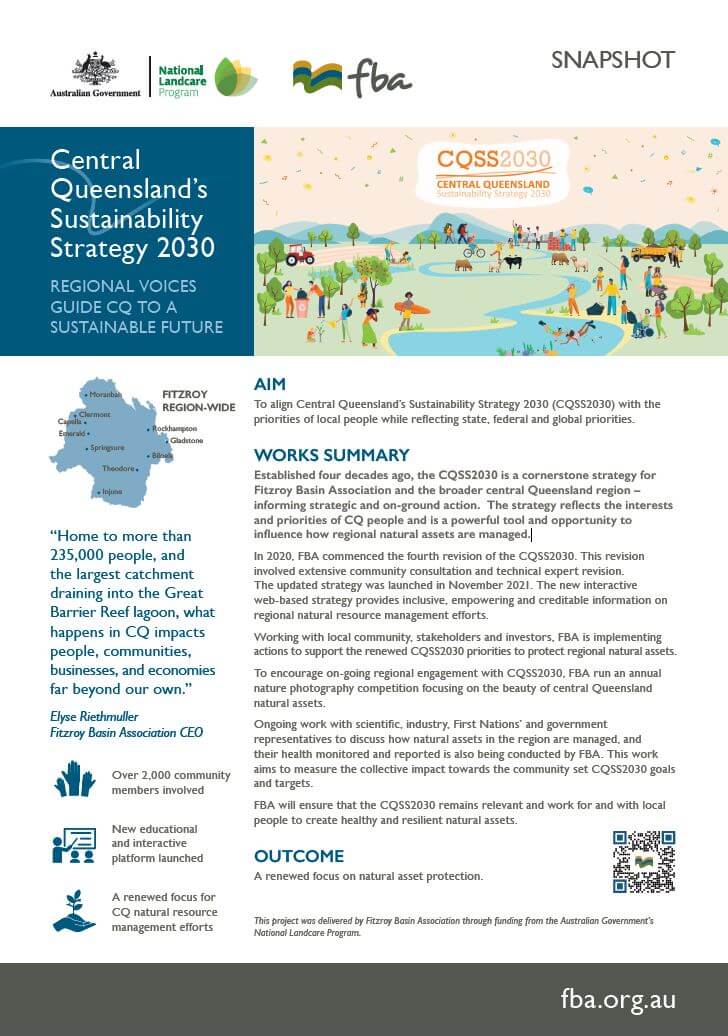
Established four decades ago, the CQSS2030 is a cornerstone strategy for Fitzroy Basin Association and the broader central Queensland region – informing strategic and on-ground action. The strategy reflects the interests and priorities of CQ people and is a powerful tool and opportunity to influence how regional natural assets are managed.
04/04/2023
Bringing back the endangered bridled nail-tailed wallaby at Taunton National Park (Scientific) through effective predator control
Bringing back the endangered bridled nail-tailed wallaby at Taunton National Park (Scientific) through effective predator control
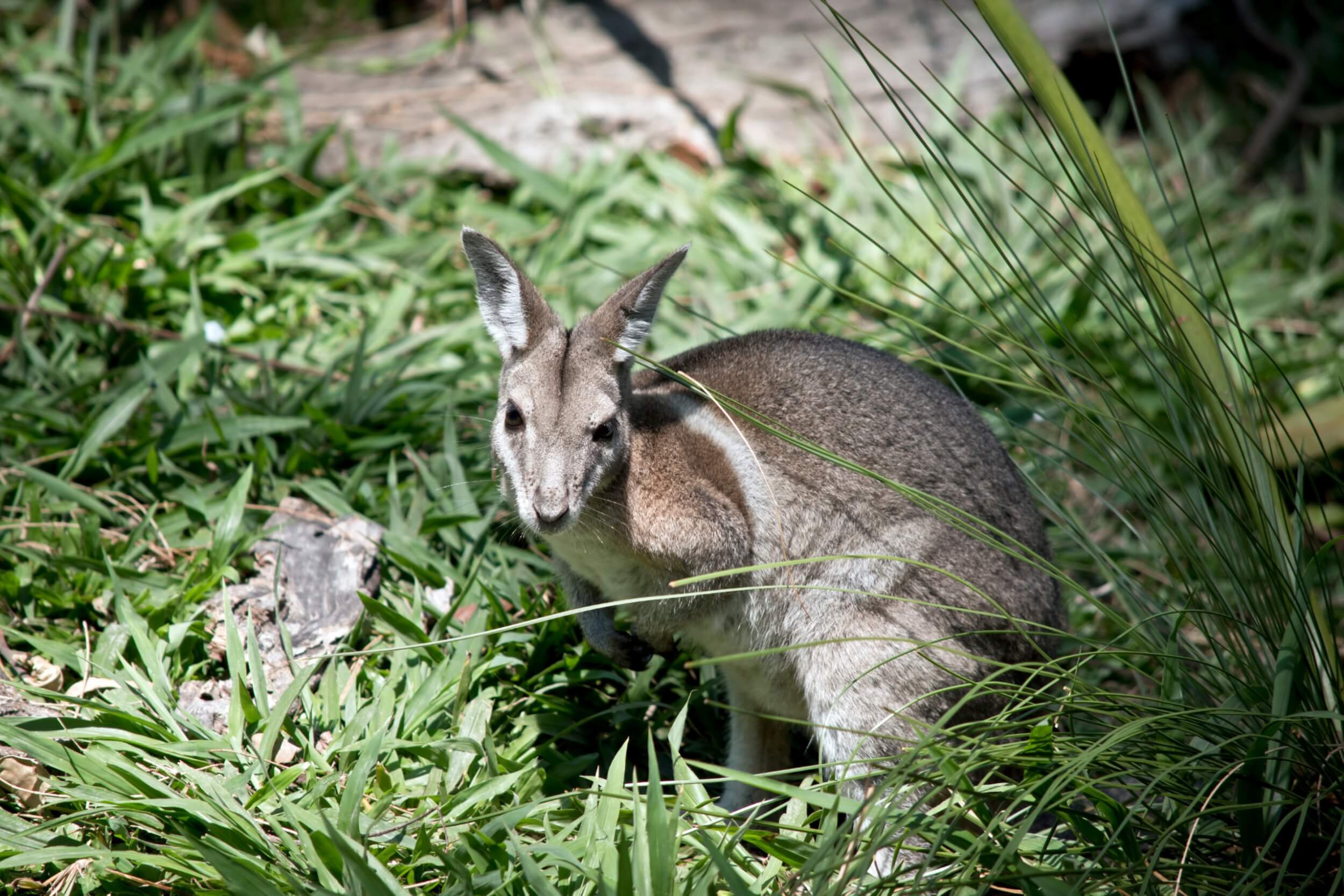
The study found that native species conservation in fox-free environments is possible without the need for predator-proof fences and the ongoing maintenance costs.
31/01/2022





